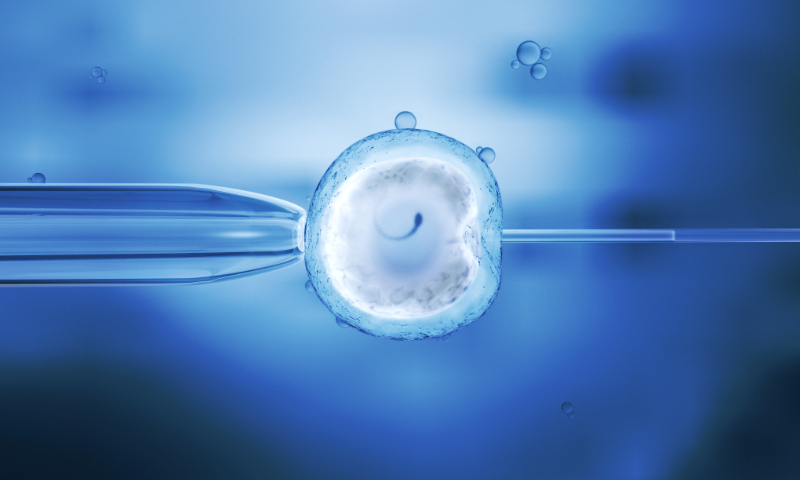
IVF Photo: VCG
While some provinces and cities in China have included assisted reproductive technologies (ART) in their medical insurance as part of supportive policies to encourage childbirth over the past year, some political advisors to the ongoing two sessions proposed optimizing the current maternity insurance system and including assisted reproductive treatment expenses in the national medical insurance.
After the national healthcare security authorities proposed in July 2022 gradually incorporating some ART procedures into medical insurance, some places such as Beijing and Inner Mongolia Autonomous Region started including 16 therapeutic assisted reproductive technology procedures and eight assisted reproductive technology procedures like oocyte retrieval in the scope of medical insurance payment, respectively.
However, as only four provinces, autonomous regions, or municipalities across the country have included some ART procedures in medical insurance reimbursement, it cannot benefit all groups in need, and insured individuals from different regions enjoy inconsistent treatment benefits, Xu Ruixia, a member of the National Committee of the Chinese People's Political Consultative Conference (CPPCC) and deputy head of the department of human resources and social security of Inner Mongolia Autonomous Region, said in a proposal sent to the Global Times on Monday.
The political advisor suggested including as many ART procedures as possible in the national medical insurance reimbursement scope, including artificial insemination, embryo transplantation, and sperm selection. These procedures involve a wide range of people and are necessary steps in medical treatment.
She also proposed that many diagnostic tests for the causes of infertility, such as semen analysis, should be included in the national medical insurance reimbursement scope. This encourages patients to seek medical treatment early, reducing the likelihood of infertility patients delaying treatment due to economic reasons, Xu said.
The CPPCC member also suggested strengthening the standardized management of medical institutions' reimbursement projects for the diagnosis and treatment of infertility.
China's population decreased by 2.08 million people in 2023 to 1.40967 billion, as per data released by the National Bureau of Statistics (NBS) on January 17. In 2023, 9.02 million babies were born, resulting in a birth rate of 6.39 per thousand people.
The birth rate marked a historic low in nearly 74 years (since 1950), and the population has experienced two consecutive years of negative growth, with a total fertility rate of around 1.0, significantly lower than the average total fertility rate of major countries globally during the same period (ranging from 1.47 to 1.65), Xu said in the proposal.
The proportion of infertility group in China has increased from 1 to 2 percent in the 1970s to 12.5 to 15 percent three decades later, marking a nearly tenfold increase over 30 years. According to statistics, in 2023, the incidence of infertility in China has risen to 18 percent, with approximately 1 in every 5 to 6 couples experiencing difficulties with conception. This means that over 50 million couples nationwide are affected by infertility issues, the CPPCC member said.
Faced with expensive ART procedures costing over 100,000 yuan ($13,895) per case, Xu said it's necessary to include ART treatment in medical insurance to boost the birth rate and alleviate economic pressure.
Ahead of the two sessions, another political advisor, Zhao Changlong from North China's Tianjin, proposed adjusting the current maternity insurance system to a national maternity insurance system to ensure universal coverage for all citizens.
Additionally, Zhao suggested establishing a well-balanced system for ART services, promoting epidural anesthesia during childbirth, and gradually including related expenses in the scope of medical insurance or providing policy incentives. Furthermore, exploring the feasibility of egg-freezing for single women could also be considered at an appropriate time.
Due to changes in attitudes toward marriage and childbirth, some single women are beginning to freeze their eggs as a means of postponing reproduction, preserving fertility, and asserting their reproductive rights. However, issues related to technology, law, ethics, and others remain unresolved, Zhao was quoted as saying in media reports.
The political advisor suggested that with advancements in science and technology, improvements in overall social morality, and the enhancement of legal system, it is appropriate to explore the feasibility of egg freezing for single women, according to the reports.
Global Times




